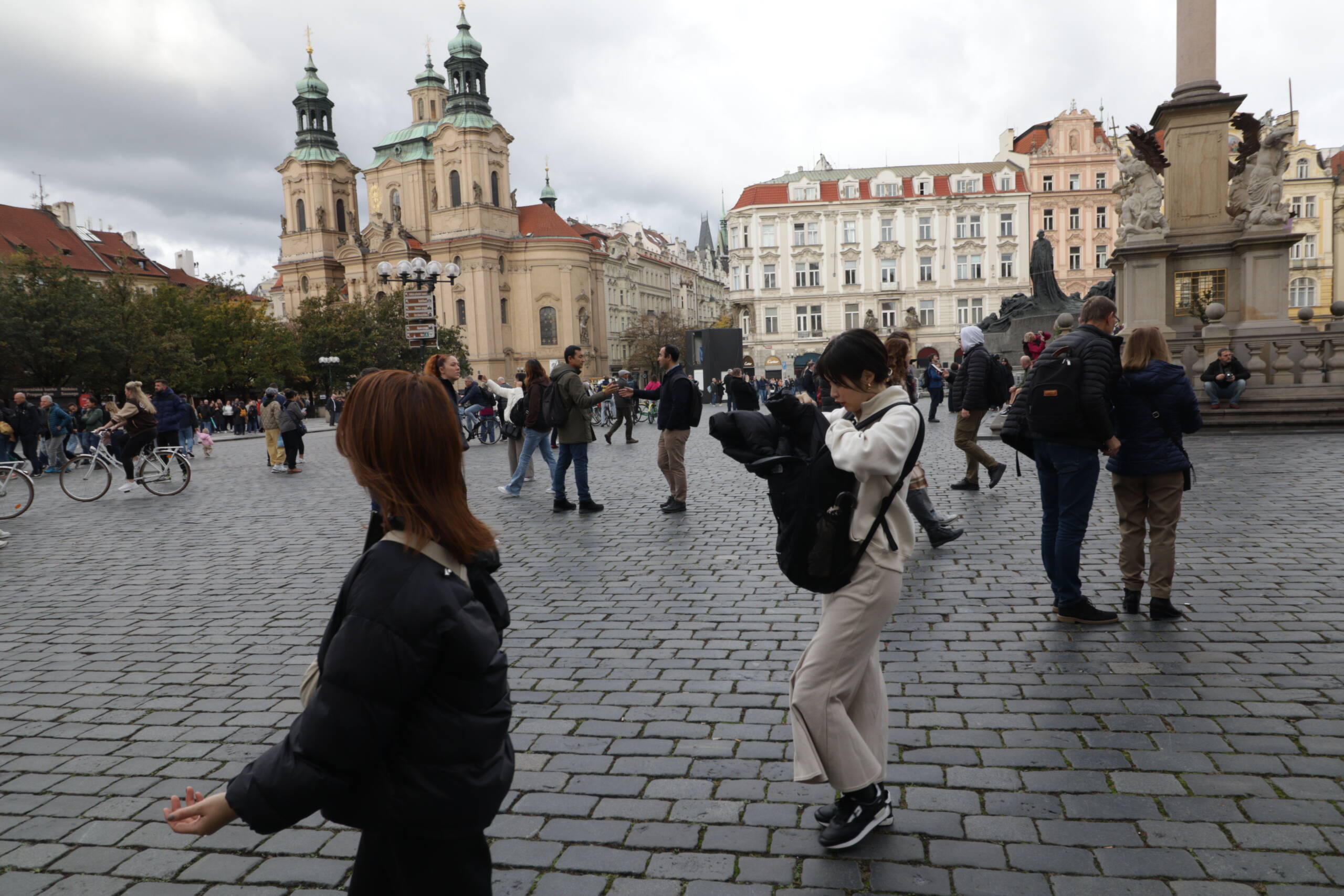There’s a small moment happening here, almost easy to overlook. A girl stands in the middle of Old Town Square of Prague with her backpack pulled forward, hands searching through pockets in that familiar quiet panic every traveler knows. Around her, the city continues its busy spin: couples taking photos, bicycles gliding past, tour groups forming and dissolving like migrating birds, while the church towers watch over it all. But the center of the moment isn’t the square or the crowd. It’s that tiny internal inventory she’s running: camera, phone, wallet, map, charger, ticket stubs, a pastry receipt she kept because the café felt warm and pleasant in a way she didn’t want to forget. You can almost feel the weight of her backpack not just on her shoulder, but in her mind.

Travel has this invisible layer of carrying. No matter how light you pack, you end up holding micro-lists in your head all day. Did I zip the bag properly? Is my wallet where it always is? Where did I put the room key? Did I leave the charger plugged into the hostel wall? You can enjoy the view, the architecture, the cobblestones and pastel facades, and still feel those tiny sparks of uncertainty flickering in the background. And it’s normal. Every traveler, no matter how confident they seem, lives with these little check-ins.
What matters most is how you handle them. The world will never stop moving, and cities like Prague don’t pause to give you space to think. So you make your own pause. Slow down. Step aside. Take a breath. Let your hands find what they need to find. The worst thing you can do is panic — panic makes you blind. Losing your cool makes you lose your awareness, and awareness is everything when you’re on the road. You don’t have to look like you’re in control. You just have to remain present enough to stay safe and steady.
If you discover your wallet isn’t where it should be, don’t freeze into fear or spiral into embarrassment. It happens. Take a moment. Check the bag again, calmly. Retrace your steps without rushing your thoughts. Most of the time it’s just in another pocket, tucked between a guide map and a packet of tissues. And if it’s really lost, being calm is what lets you handle what comes next: calling the bank, retracing steps, asking for help. Calm isn’t about pretending everything is fine. It’s about having the space inside yourself to deal with things.
Watching your environment isn’t about being paranoid. It’s about being awake. Look around not to fear the world, but to notice it. Notice where your belongings are. Notice the people near you. Notice the square, the sky, the pigeons, the way the wind moves around the old buildings. Awareness can be grounding. It can also be beautiful.
Travel will always carry this weight, both physical and mental. But the city doesn’t ask you to be perfect. It only asks you to be present. And in that quiet moment in the middle of the square, the girl with the backpack is learning exactly that, one pocket at a time.
Leave a Reply